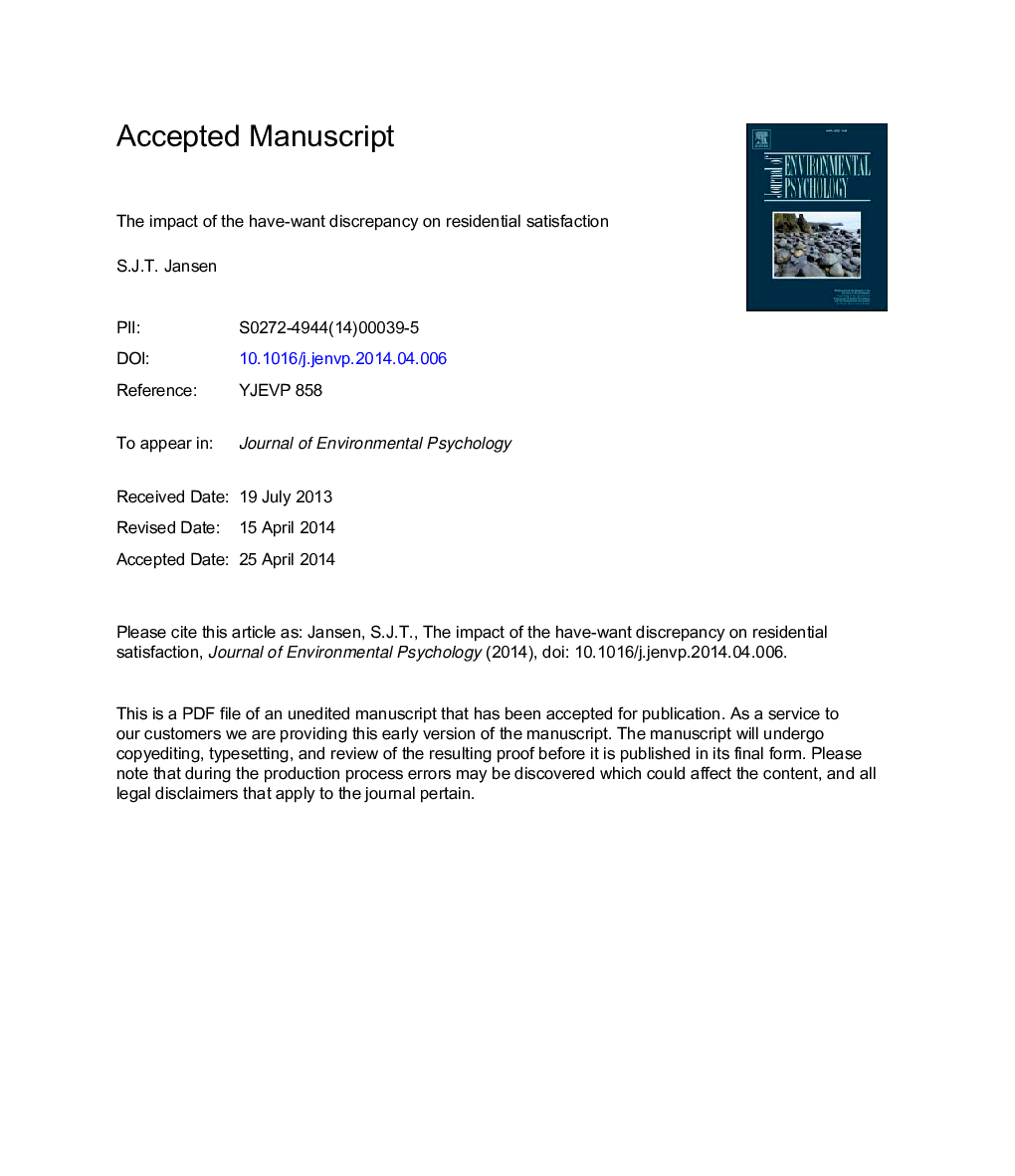| Article ID | Journal | Published Year | Pages | File Type |
|---|---|---|---|---|
| 7246100 | Journal of Environmental Psychology | 2014 | 41 Pages |
Abstract
Residential satisfaction is an important component of individual well-being. The literature has shown that residential satisfaction is influenced by personal characteristics and aspects of the dwelling (environment). However, even more important may be the level of agreement between what one has and what one wants. The current study examines the occurrence of a mismatch for eight dwelling aspects and its impact on residential satisfaction. For the numerical dwelling aspects, the respondents were divided into three categories: mismatch (prefers more space), match and mismatch (prefers less space). Interestingly, the latter respondents generally had the highest mean residential satisfaction. Thus, a mismatch in itself does not necessarily reduce residential satisfaction. Regression analyses showed that residential satisfaction is predicted by personal characteristics, dwelling aspects and mismatch variables. In conclusion, this study provides some evidence that residential satisfaction decreases if what one has does not correspond with what one would like.
Related Topics
Social Sciences and Humanities
Psychology
Applied Psychology
Authors
S.J.T. Jansen,
